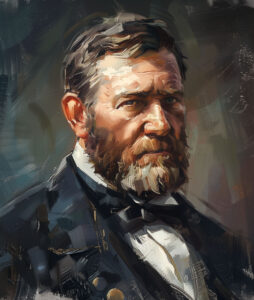Conflicting reports emerged from Kabul, Afghanistan, on Monday, September 10, 2001. Some claimed a suicide bombing had indeed killed Ahmed Shah Massoud, the leader of the last remaining faction opposing the radical Taliban that controlled most of the country. Others claimed he had survived the attempt by two Arabs posing as journalists, members of a terrorist outfit called al-Qaeda, but all reports agreed Massoud was at least critically wounded. His partisans reported that he lay unconscious in a hospital in Tajikistan, just across the border from one of his redoubts in western Afghanistan. The CIA had him dying in a helicopter en route to the emergency room.
Officially, Massoud was merely the defense minister in the deposed government of the aging Burhanuddin Rabbani, which had been ousted by the Taliban in 1996 but was still recognized by most of the world as the legitimate ruler of the Afghanis. Unofficially, Massoud was the West’s last hope against the jihad-minded religious tyranny run by Islamic fundamentalists who had most recently shocked the world by destroying ancient giant Buddhas carved into cliffs centuries ago, part of its vow to destroy images it deemed “offensive to Islam.”
For those Americans paying attention to such matters, the worry was not only that the Taliban would assume complete control of Afghanistan, but also that foreign terrorists, including the Saudi renegade and al-Qaeda leader Osama bin Laden, were playing a growing role in the Taliban government. For it was bin Laden who had been the major financier—and some said mastermind—behind the uptick in terrorist attacks in recent years on U.S. facilities in Europe and the Middle East.
Indeed, on September 10, terrorist violence wracked the entire region. Two Istanbul police officers were killed and at least 20 people wounded when a woman suicide bomber set off a powerful blast in crowded Taksim Square. In Israel, attackers struck the West Bank and the Gaza Strip, even as Israeli and Palestinian negotiators prepared for talks scheduled the following day. Hamas claimed credit for the violence, including a September 9 suicide bombing in Israel’s northern town of Nahariya, the first committed by an Arab who was also an Israeli citizen.
Just the Friday before, President George W. Bush convened his National Security Council to refine his Middle East policy. Arab governments, particularly friendly Saudi Arabia and Egypt, were pressuring the administration to change what they viewed as its much too warm embrace of Israel. Once firm in his refusal to meet with Palestinian leader Yasser Arafat, Bush was reportedly considering changing course as the leaders of Israel and the Arab world began arriving in New York for the opening of the U.N. General Assembly the next week.
Any hopes for a change in the administration’s policies, or for progress in the scheduled September 11 Israeli-Palestinian peace talks, were made that much more remote by Monday’s violence. Terrorist intractability was underscored by the widely broadcast video of the Nahariya suicide bomber, waving an M-16 and a Koran as he read a statement prior to his deed.
But, for most Americans, the oft-repeated cycle of Mideast terror was more of the same background noise. Since May, the American news media had been consumed with the salacious mystery surrounding Chandra Levy, a missing former intern to Congressman Gary Condit, Democrat from California.
Most believed Condit had a sexual affair with the young woman, and many suspected him of withholding important information about her disappearance. Obsessive press coverage reminiscent of Bill Clinton’s Monica Lewinsky scandal had just begun to wane when Condit agreed to a live TV interview in late August. His obvious unease and evasiveness reignited the press frenzy. Hardly a weekly newsmagazine went to print or a cable news program aired that didn’t include hyperbolic speculation on his shame and her absence.
And maybe that was because to a savvy reporter’s eyes the other news of the day in early September 2001 was frankly pretty boring. There was all the foreign stuff, of course: the terrorist takeover in Afghanistan and the increasing number of suicide bombings in Israel. But to an American press corps that had gorged on the impeachment of Bill Clinton and then the unparalleled presidential election drama of 2000, along with the increasingly bitter culture wars at home, foreign news seemed to lack umpf—as news organizations more or less openly admitted when they began cutting back severely on foreign bureaus everywhere.
Even domestic politics was growing bland. George Bush was dropping in the polls and seemed to be foundering. Reacting to growing concerns about the flood of illegal aliens across the country’s southern borders, the president had come up with one of the most sweeping immigration reforms in years, one that eased the strictures on millions of illegals but was meeting with harsh opposition in Congress, even within his own party.
The administration policymakers openly called the basis for the plan “amnesty” and urged Republicans to adopt a new attitude and formalize a situation that already existed. They needed a plan allowing the Republican Party to embrace immigrants, legal and illegal, since Latinos would soon surpass blacks as the largest minority voting bloc in the country. But, according to the September 10, 2001, issue of Newsweek, Bush’s fellow Texas Republican in the Senate, Phil Gramm, was having none of it. The Bush amnesty, Gramm said, would occur over his “cold, dead political body.”
Republicans were also growing leery of the president’s handling of the apparently weakening economy. Bush’s cautious response to dealing with the slowdown (basically sticking to the mantra of more tax cuts to stimulate investment) had many Republicans, according to The New York Times, “voicing growing concerns that the White House has underestimated public unease about the economy and the threat it poses to members of Congress up for re-election next year.”
The rapidly rising federal deficit worried not just Congress and the Times but also the Wall Street Journal. Amid debate on the hill, Bush’s promise to treat Social Security funds as stowed away in a “lock box”—untouchable for federal spending—was coming back to haunt the Republicans. They wanted to cut taxes and reduce the deficit, but their president had removed the fig leaf of borrowing funds from Social Security that had made such legerdemain possible in the past.
As unemployment grew to nearly 5 percent, Democrats tried to pin the slowdown on Bush, linking higher unemployment and slower economic growth to the argument they had already been making about how the president had squandered the substantial federal budget surplus inherited from Bill Clinton by pushing through an irresponsible tax cut. According to the September 10 Journal, Bush proclaimed he would put aside his pledge and use the surplus if the economy went into recession.
Far more riveting for many Americans than crisis in the Middle East or Capitol Hill gossip was baseball’s star hitter, Barry Bonds of the San Francisco Giants. On Sunday Bonds had broken Roger Maris’ vaunted 61-home run mark, and the September 10 papers were full of talk about his closing in on the all-time record of 70 held by Mark McGwire. Though Bonds had been named the National League’s most valuable player three times (and would soon become the only player ever to receive the award four times), his accomplishment was controversial, in part because few sportswriters and fans outside San Francisco liked him. In New York, residents were bombarded by telephone calls from candidates for mayor on September 10, the eve of the city’s primary election. But the big news seemed to be—at least according to The New York Times the next morning—that voters were disaffected.
The day before September 11, 2001, then, against the dull roar of Middle East violence and turmoil in Afghanistan, the U.S. news media remained obsessed with the mysterious disappearance of a young white girl; Republicans worried about the impact their foundering president would have on upcoming midterm elections; the White House was pushing an immigration reform package that was out of touch with its own political base; Americans were uneasy about the economy and feared nothing would be left of Social Security and Medicare when they retired; and the dislikable Barry Bonds was chasing one of baseball’s most hallowed records.
Then, a screaming plane came across a bright blue New York sky and everything changed, forever.
Or so we were told.
Originally published in the October 2006 issue of American History. To subscribe, click here.




